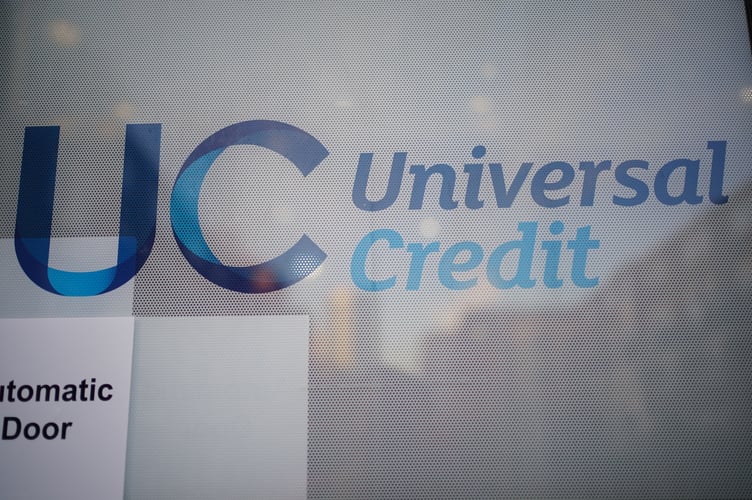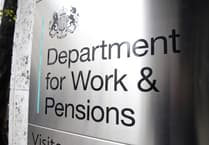More households in the Forest of Dean had their Universal Credit capped in May, new figures show.
It comes a few days after the new Work and Pensions Secretary refused to rule out tougher Universal Credit rules, saying welfare reform "is happening all the time".
The charity Disability Rights UK said the Universal Credit cap "is a brutal measure that punishes people" and called on the Government "to stop making cuts to social security and public services".
New figures from the Department for Work and Pensions show 111 households in the Forest of Dean had their Universal Credit benefit capped in May – up 8% from 103 in February.
Of those, 34% had up to £100 capped, 62% had between £100.01 and £500 capped and 5% had £500.01 or above capped.
Across Great Britain, some 123,094 households were capped on Universal Credit in May – up 7% from 114,629 in February, which coincides with the benefit's annual increase that took place in April.
It means 1.9% of working age households claiming Universal Credit had their benefits capped in May, an increase from 1.7% of households in February.
The monthly average cap amount was £256 in May, compared with £255 in February.
Earlier this week, new Work and Pensions Secretary Pat McFadden refused to rule out tightening eligibility for Universal Credit nor ending health-related Universal Credit payments for claimants under 22 years.
Speaking to the BBC on Monday he said: "Look, I’m not ruling anything out. Welfare reform is really important.
"At the moment, this system is unhealthy for people and in the long run is pushing up the benefits bill because we’re not getting the help to people who could work."
Disability Rights UK policy lead Mikey Erhardt said: "Everyone wants our safety net to be there when we need it.
"The continued existence of benefit cap is a brutal measure that punishes people. It moves the focus away from the failure of successive governments to improve living standards."
He added the current cap on Universal Credit "risks thousands of disabled people being evicted from social housing and left homeless" as costs of living keeps rising.
"What more evidence does the Government need to rethink its failed strategy? It’s not credible to believe that more people will secure work, in response to cuts to their support," he said.
"The Government should take responsibility for changing the disastrous status quo.
"This requires them to stop making cuts to social security and public services and instead, to introduce policies that benefit all of us; both disabled people and the wider economy and society."
James Taylor, director of strategy at disability equality charity Scope, said: "Disabled people have long known that cutting welfare support doesn’t move people into work.
"The health element of Universal Credit is already down to be halved and then frozen, while those under 22 are in the firing line to have their support scrapped.
"Further squeezing will only pile on the pressure."
He added: "It’s important that the Government recognises that some disabled people will never work, and cutting support will only make it more difficult for those who want to work.
"At the very least the Government should wait till it knows the impact of its plans before acting."
The figures also show 102,594 (83%) of capped households across Great Britain at May included children.
A Government spokesperson said: "Too many sick or disabled people are being left behind without the support they need to get back to health and into work.
"That’s why we’re getting on with the reform agenda, as part of our Plan for Change, shifting our focus from welfare to skills, opportunities, and supporting people into good, secure work, while always protecting those who need it most."




